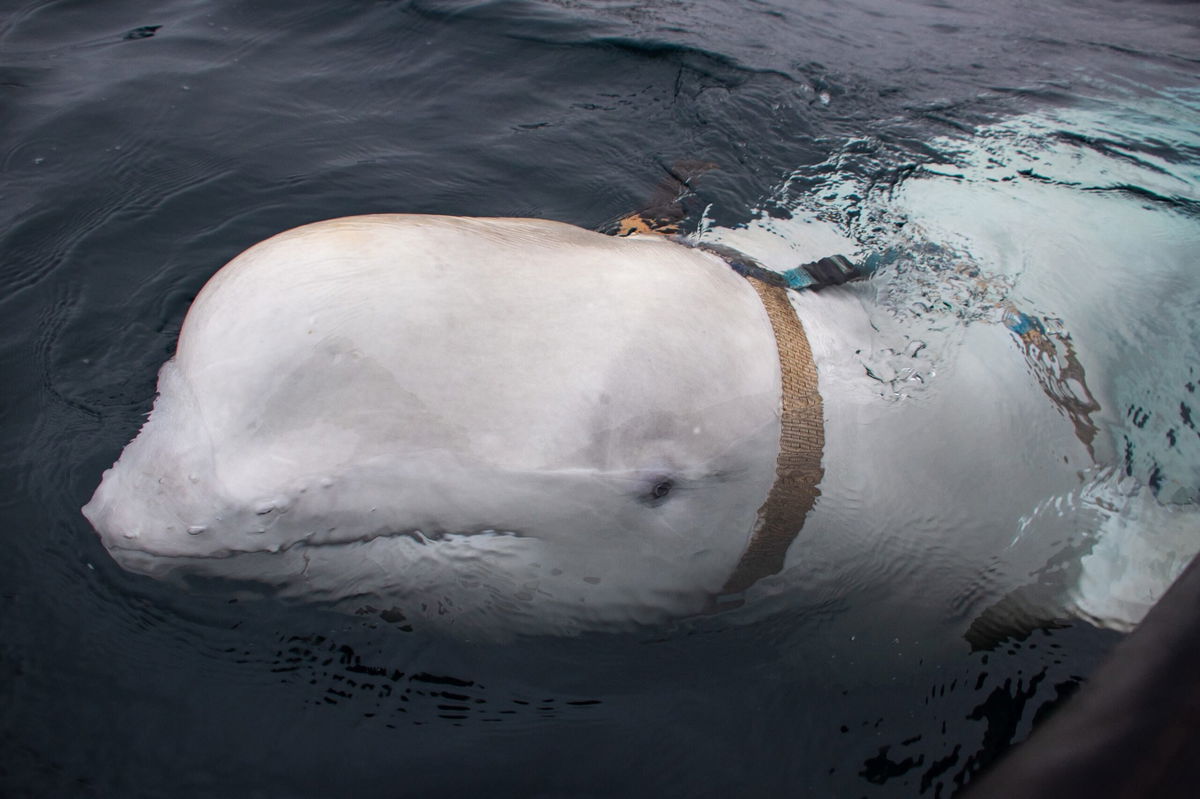Alleged Russian ‘spy’ whale now in Swedish waters

A beluga whale widely speculated to be an alleged Russian “spy” has entered Swedish waters
By James Frater, Catherine Nicholls and Jack Guy, CNN
(CNN) — A beluga whale widely speculated to be an alleged Russian “spy” has entered Swedish waters, according to OneWhale, an organization set up to protect the animal’s health and welfare.
The whale, nicknamed Hvaldimir, garnered international fame in 2019 after being spotted wearing a specially made harness with mounts for a camera, leading experts to believe that the animal may have been trained by the Russian military.
“After four years of swimming south down the coast of Norway, Hvaldimir – known worldwide as the ‘Russian spy’ beluga whale – is now in Swedish waters,” OneWhale said in a statement on Monday.
Hvaldimir was recently spotted in Norway’s capital Oslo, prompting concerns for the whale’s safety given the heavy boat traffic in the area.
“But the famous beluga skirted around the dangerous waters of Oslo for Sweden,” OneWhale’s statement said.
“We are impressed by Sweden’s show of care for Hvaldimir. They immediately contacted us upon his arrival, and even closed a bridge to protect him.”
President of OneWhale, Rich German, had further praise for Sweden’s reaction to the whale’s arrival.
“Hvaldimir’s situation remains an extremely vulnerable one as Sweden is a highly populated country, but we are very grateful Swedish authorities have quickly taken action to care for the whale,” he said.
Earlier this month, the Norwegian Directorate of Fisheries said Hvaldimir had “been traveling along the Norwegian coast” since 2019 with a few stops along the way.
The whale “tends to stay at farms where it has been able to catch fish, grazing on surplus feed,” the directorate added.
Hvaldimir is known to follow boats and play with those on board.
The whale’s arrival in the “densely populated area” around Oslo meant that “the risk that the whale may be injured due to human contact has become significantly greater,” said the directorate at the time.
In 2019, experts told CNN that Hvaldimir was a trained animal, and evidence suggested that the whale had come from Russia.
Jorgen Ree Wiig, a marine biologist at Norway’s Directorate of Fisheries, told CNN that the harness appeared “specially made” and had “mounts for GoPro cameras on each side of it.”
And the harness clips read “Equipment St. Petersburg,” contributing to a theory that the whale came from Murmansk, Russia, and was trained by the Russian navy.
The navy has “been known to train belugas to conduct military operations before,” Wiig said, “like guarding naval bases, helping divers, finding lost equipment.”
The-CNN-Wire
™ & © 2023 Cable News Network, Inc., a Warner Bros. Discovery Company. All rights reserved.

